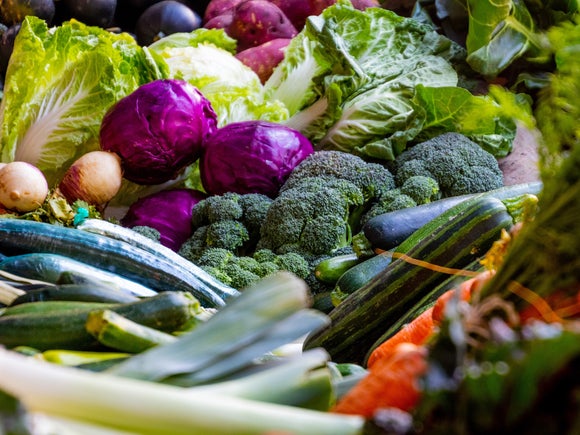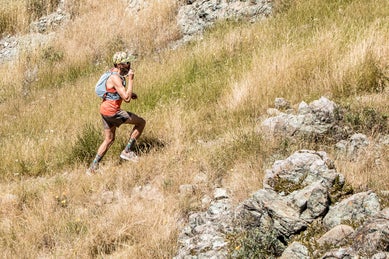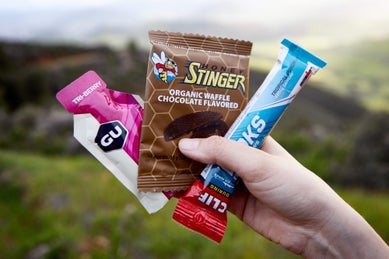Top Nutrition Tips for Vegetarian and Vegan Runners
How Vegetarian and Vegan Runners Can Maximise
Their Athletic Performance

Vegetarian and vegan diets are no longer just a trend in the world of health and nutrition. From elite runners and weightlifters to basketball and football players, athletes from various sporting backgrounds are utilising vegan and vegetarian diets to optimise their physical performance. As more and more information is released advocating for the health (and ethical) benefits of a plant-based diet, athletes have found that with a little extra thought and planning, their nutritional needs can be met without eating animal-based products. Despite this, there are a few areas to be particularly conscious of when training on a vegetarian or vegan diet.
Calories
Plant-based or vegan diets can be less calorie-dense than that of their omnivorous counterparts, and, as we know, it takes an abundance of calories to fuel a running habit. Consuming too few calories is something all runners will want to avoid as this can dramatically hinder recovery, hamper the positive impact of your training sessions, and can actually slow your metabolism (this is especially counterintuitive for those whose goal it is to lose weight). Adequate calorie intake is an absolute must for successful training and long-term health.
| Incorporating different varieties of nuts, or supplements like Tailwind Recovery Drink, are effective and simple ways to add extra calories into your diet. Additions like these will ensure that your running and health are always at their peak. |
Protein
For runners, protein plays an important role in rebuilding and maintaining the muscles that power our training. According to the American College of Sports Medicine, protein intake for runners should fall between 1.2 and 1.7 grams per kilogram of body weight. This means that a 70kg runner should consume between 90 and 120 grams of protein in a day. This can seem like a lot of protein, especially when you are not eating any meat, but vegans and vegetarians alike can get more than enough protein to support their training needs.
Vitamin B-12
Vitamin B-12, also known as cobalamin, is an essential nutrient but not one that our bodies can produce naturally. Therefore, we need to make sure it is present in our diet to stay healthy. Most of the top sources of B-12 are animal-based products, which can make it difficult for vegans and vegetarians to get the proper amount in their system. Similar to iron (*see next point), without proper amounts of vitamin B-12, runners risk becoming anemic, which will undoubtedly have negative effects on any training regiment or derail it completely.
| Some great sources of B-12 for vegetarians include cows milk, cheese, and eggs. Cereals, soy milk, and meat substitutes are often fortified with B-12 and are also great options. Again, supplements are an excellent addition to any diet and can ensure that you are getting the proper amounts of nutrients to stay healthy. |
Iron
Iron plays an important role in transporting oxygen to your muscles and is therefore yet another essential nutrient for healthy athletic performance. If your iron levels are too low, you will generate fewer red blood cells, which means you won't be able to carry as much oxygen to your working muscles. The average male runner needs around 8 milligrams of iron per day, and the average female runner needs about 18 milligrams. Unfortunately, plant-based sources of iron are not as readily absorbed as animal sources, making iron requirements for vegetarian and vegan athletes higher than those of meat-eating runners. The Academy of Nutrition and Dietetics recommends that plant-based eaters consume 1.8 times the amount of iron as non-vegetarians.
| Vegetarian and vegan sources of iron include spinach, soybeans, lentils, quinoa, beans, and blackstrap molasses. Cooking with a cast iron skillet is a less-known trick to incorporate more iron into your diet, as iron from the skillet infuses into the food you are cooking. |
Zinc
Like iron, zinc is also not easily absorbed when it comes from plant-based sources, so vegetarians and vegans require higher daily levels of zinc in their diets. This nutrient helps our bodies fight infections, heal injuries, and promote healthy muscle growth. Runners need to be mindful to ensure that they are consuming enough zinc in their diets, as not being able to recover quickly or becoming sick is something we all would like to avoid.
| Fortunately, there is an abundance of sources vegetarians and vegans can consume to secure healthy amounts of zinc in their diets. Foods including lentils, beans, soy, nuts, seeds, oats, and wheat germ are just a few options that runners can look to in order to meet their daily zinc requirements. |

